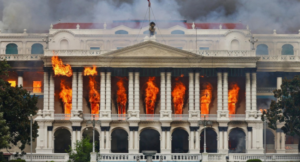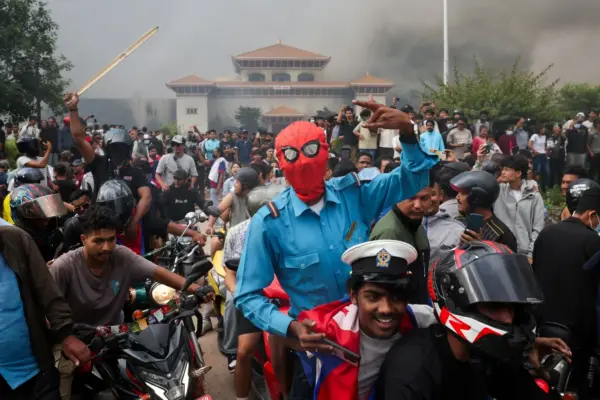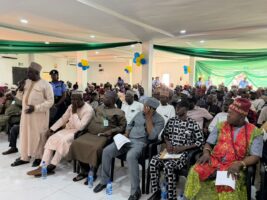Protesters in Kathmandu have breached the curfew imposed on citizens amid the ongoing social media ban demonstration, broke into and set fire to the parliament building after earlier vandalising the office of the Nepali Congress, the country’s largest political party, and attacked the homes of several high-profile politicians.
The Nepalese Prime Minister, KP Sharma Oli, resigned from his position on Tuesday amidst intensifying anti-corruption protests. This move followed a day of violent clashes between demonstrators and security forces, which resulted in 19 fatalities, prompting widespread unrest triggered by a social media ban, Al Jazeera reported.

Protests began on Monday with demands that the government lift a ban on social media and tackle corruption, with police trying to crush the rallies, including using live ammunition.
Oli’s administration had initially lifted the ban on Monday after the protest intensified when the Nepalese police resorted to using force to disperse protesters.
Read Also
The police used live ammunition and deployed tear gas and rubber bullets against demonstrators trying to storm parliament. This confrontation killed 19 people and injured more than 100.
The “Gen Z” protesters swarmed the parliament complex after hearing the news, celebrating with raised hands and chanting slogans as smoke filled parts of the building.
“We won,” one protester wrote in large orange letters on a beige wall of the parliament building while another nearby flashed a “V” sign for victory with his fingers.
Despite the PM’s resignation, protesters continued to occupy the streets, but witnesses described a peaceful scene, with no clashes or violence reported as security forces refrained from intervening or using force.
The Himalayan country, nestled between India and China, has witnessed its most severe turmoil in years. The recent violence surpassed the intensity of the 2006 uprising, which led to the last king of Nepal relinquishing executive powers after 18 fatalities, and ultimately resulted in the monarchy’s abolition by parliament two years later.





